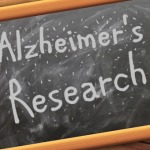Recent Categories
- ADD/ADHD-Attention Deficit Disorder/Attention Deficit Hyperactivity Disorder
- ALS-Amyotrophic lateral sclerosis
- Alzheimer's Disease
- Anorexia
- Anxiety Disorders (including Panic Attacks and Phobias)
- Arthritis/Inflammation
- Asthma
- Autism
- Blood Pressure (Hypertension)
- Brain Cancer
- Breast Cancer
- Broken Bones
- Cancer
- Chemotherapy Side Effects
- Huntington Disease
- Leukemia
- Liver Cancer
- Lung Cancer
- Medical Conditions
- Osteoarthritis
- Osteoporosis
- Parkinson's Disease
- Prostate
- Stomach Cancer
Recent Posts
Post Archive
Catogery Tags
Connect With Us
-
Cannabis in Cancer Care-2015
In 2015, Cannabis in Cancer Care with History There has been an increasing body of evidence over the past decade that cannabinoids may have a role in cancer therapy. Evidence from cell culture systems as well as animal models has shown that THC and other cannabinoids may inhibit the growth of some tumors by the modulation
-
Cannabis into clinical cancer care-2016 Mar
In 2016, Integrating cannabis into clinical cancer care BACKGROUND: Modern-day scientists have increasingly been turning their attention to cannabis due to its potential to inhibit or destroy cancer cells, and at the very least, manage the pain and symptoms that come with the illness. But then, ancient people seem to have known that already.4 You can
-

Alzheimer’s Research-2016 Nov
In 2016, Stimulation of brain glucose uptake by cannabinoid CB2 receptors and its therapeutic potential in Alzheimer’s disease BACKGROUND: Investigated here the local cerebral glucoregulatory potential of the endocannabinoid system in rodents. first direct pharmacological evidence in vitro and in vivo of a role of CB2R in central glucoregulation. You can read the full article here => http://www.sciencedirect.com/science/article/pii/S0028390816300879
-
Alzheimer’s Research-2015-March
In 2015, The influence of cannabinoids on generic traits of neurodegeneration BACKGROUND: Through multiple lines of evidence, this evolutionarily conserved neurosignalling system has shown neuroprotective capabilities and is, therefore, a potential target for neurodegenerative disorders. This review details the mechanisms of neurodegeneration and highlights the beneficial effects of cannabinoid treatment. You can read the full article
-
Alzheimer’s Research-2007 Sep
In 2007, Alzheimer’s disease; taking the edge off with cannabinoids? BACKGROUND: The evidence supporting a potential role for the cannabinoid system as a therapeutic target for the treatment of Alzheimer’s disease will be reviewed herewith. You can read the full article here => https://www.ncbi.nlm.nih.gov/pmc/articles/PMC2190031/.
-
Alzheimer’s Research-2016 Oct
In 2016, CB2 Cannabinoid Receptor As Potential Target against Alzheimer’s Disease BACKGROUND: This review discusses available data regarding the role of CB2 receptors in AD and the potential usefulness of specific agonists of these receptors against AD.. You can read the full article here => https://www.ncbi.nlm.nih.gov/pmc/articles/PMC4885828/?report=classic
-
Chemotherapy Side Effects Study-1994
In 1994, A phase II study of delta-9-tetrahydrocannabinol for appetite stimulation in cancer-associated anorexia. BACKGROUND: Nineteen patients with various malignancies were entered. All had cancer-associated anorexia and a life expectancy greater than four weeks. Patients were started on THC 2.5 mg p.o. t.i.d. one hour after meals for four weeks. Evaluations for side effects, efficacy, acceptability
-
Cancer Research-2009 April
In 2009, Cannabinoid action induces autophagy-mediated cell death through stimulation of ER stress in human glioma cells. BACKGROUND: These findings describe a mechanism by which THC can promote the autophagic death of human and mouse cancer cells and provide evidence that cannabinoid administration may be an effective therapeutic strategy for targeting human cancers. You can read
-

Brain Cancer Research-2011 Jan
In 2011, A Combined Preclinical Therapy of Cannabinoids and Temozolomide against Glioma.Tumors were induced in nude mice BACKGROUND: The present work was therefore undertaken to study the potential synergic antitumoral action of TMZ (the benchmark agent for the management of GBM) and THC and CBD. Mice were assigned randomly to various groups and injected peritumorally for
-
Brain Cancer Research-2004 Mar
In 2004, Antitumor Effects of Cannabidiol, a Nonpsychoactive Cannabinoid, on Human Glioma Cell Lines BACKGROUND: study to evaluate the in vitro antiproliferative ability of cannabidiol (CBD), a nonpsychoactive cannabinoid compound, on U87 and U373 human glioma cell lines. You can read the full article here => http://jpet.aspetjournals.org/content/308/3/838


